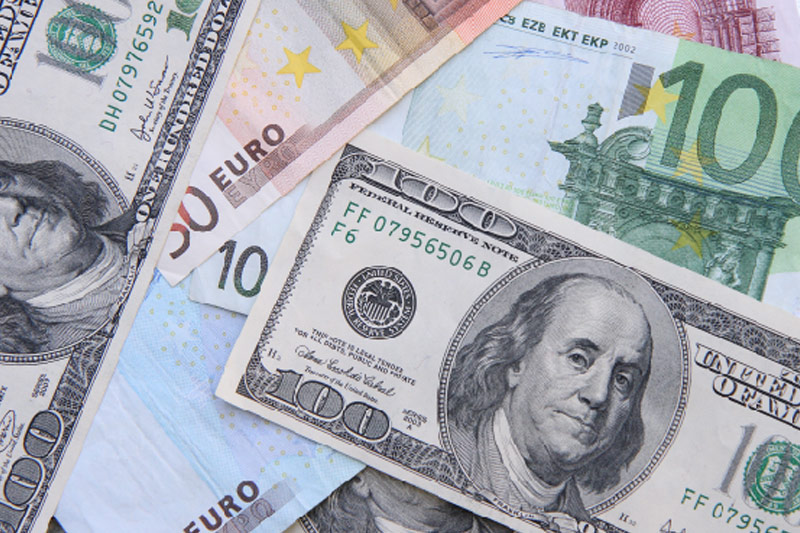Investing.com - The dollar firmed against most major currencies on Wednesday after data revealed far more new homes were sold in August than markets were expecting.
In U.S. trading on Wednesday, EUR/USD was down 0.52% at 1.2780.
The Census Bureau reported earlier that U.S. new home sales rose 18.0% last month to 504,000 units, far surpassing expectations for a 4.4% gain to 430,000 units. New home sales for July were revised to a 1.9% increase from a previously estimated 2.4% drop.
Separately, the Department of Energy reported earlier that crude stockpiles plunged by 4.3 million barrels last week, confounding market calls for a build of 386,000, which further stoked expectations that the U.S. economy is improving as evidenced by its demand for fuel and energy.
Wednesday's data came a day after a report showed that the U.S. manufacturing sector expanded in September close to market expectations, which fueled already growing expectations that the Federal Reserve may hike interest rates sooner than markets have previously expected.
In October, the Federal Reserve is expected to close its monthly bond-buying program and then begin raising benchmark interest rates some time in 2015, though the timing of the latter remains up in the air.
Meanwhile across the Atlantic, European Central Bank President Mario Draghi said the bank will keep its monetary policy "accommodative" for as long as needed and use every tool at its disposal to fight deflation, comments that softened the euro and bolstered the greenback's appeal.
"Monetary policy will remain accommodating for a long time and I can tell you that the Governing Council is unanimous in committing itself to using the tools at its disposal to bring inflation back to just under 2%," Draghi said.
"Interest rates will remain low because they can’t get much lower," he added.
The ECB unexpectedly cut rates to record lows this month in a bid to address slowing inflation.
Elsewhere, Germany's Ifo business confidence index deteriorated for the fifth successive month in September.
The Ifo economic institute's business climate index fell to 104.7 from 106.3 in August. It was the lowest level since April 2013 and much weaker than economists’ forecasts for 105.7.
The data added to fears that the euro zone’s largest economy is losing momentum.
The dollar was up against the yen, with USD/JPY up 0.09% at 109.00, and up against the Swiss franc, with USD/CHF up 0.58% at 0.9452.
The yen saw some support and even strengthened against the dollar briefly after Japanese Prime Minister Shinzo Abe voiced concerns over the economic impact of recent weakness in the yen.
Prime Minister Abe reportedly said that the weaker yen had both positive and negative impacts and that he wanted to carefully watch the impact of yen weakness on regional economies and on small and mid-sized companies.
The greenback was up against the pound, with GBP/USD down 0.30% at 1.6340.
The dollar was mixed against its cousins in Canada, Australia and New Zealand, with USD/CAD down 0.10% at 1.1066, AUD/USD up 0.42% at 0.8877 and NZD/USD up 0.25% at 0.8070.
The dollar index, which tracks the performance of the greenback versus a basket of six other major currencies, was up 0.40% at 85.15.
On Thursday, expect markets to move on U.S. durable goods orders and weekly jobless claims numbers.
